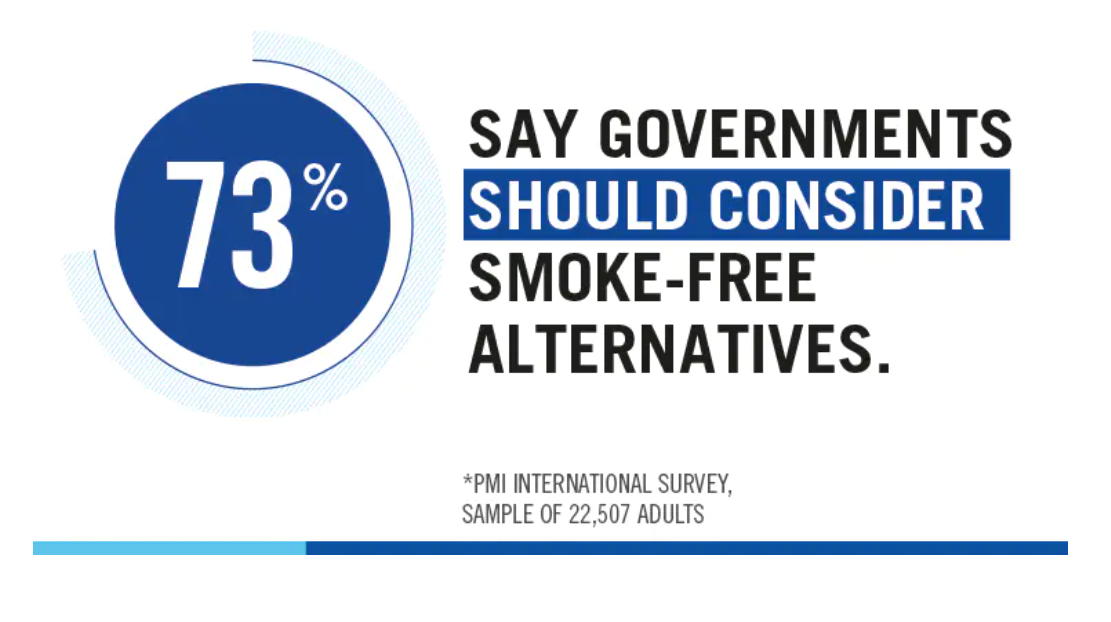Three in four adults agree that governments should consider the role smoke-free products can play in tobacco harm reduction
There is a public appetite for new approaches to reduce the societal harm caused by cigarettes, according to a global survey commissioned by Philip Morris International (PMI).

Up to 71 percent of respondents believe that encouraging adult smokers who would otherwise continue to smoke to switch to smoke-free alternatives can complement other efforts to reduce harm, according to the results of a survey conducted by independent research company Povaddo.
67 percent of respondents say that, if it is possible to end cigarette sales in their country within 10 to 15 years (through smokers quitting tobacco or switching to better, science-based alternatives), their government should dedicate time and resources to making that a reality.
The results of the survey, commissioned by Philip Morris International, of 22,507 adults in 20 countries, explore attitudes regarding the role of smoke-free alternatives in improving public health.
“Smoke-free products can play an important role in lowering smoking rates,” said Jacek Olczak, Chief Operating Officer (COO) at Philip Morris. “With the right regulatory encouragement, support from civil society, and the full embrace of science, I believe it is possible for the public’s call to be answered and for cigarette sales to be a thing of the past in many countries within a decade to a decade and a half,” says Olczak.
The survey shows that 73 percent respondents agree that governments should consider the role alternative products can play in making their country smoke-free. Also, 77 percent of them believe that adult smokers should have access to accurate information about smoke-free products, which are scientifically proven to be better than continued smoking.
“The best choice every smoker can make is to quit both nicotine and tobacco altogether”
“The best choice every smoker can make is to quit both nicotine and tobacco altogether. Results of this survey show that the general public is willing to openly discuss all options leading to the resolution of the cigarette smoking issue, which we know threatens the health of both smokers and people around them,” said Sandra Skurić Jelisić, MD, a general medicine specialist. ‘We also know that it is important for people to have the right information and an opportunity to make decision based on scientific evidence and findings. Therefore, every initiative leading towards protection and promotion of public health should be taken into consideration by all stakeholders, with encouragement for dialogue,” concludes Skurić Jelisić.
When asked about the importance of key challenges in today’s world, respondents placed ensuring quality and affordable healthcare for all on a par with improving the economy and expressed their support for governments to explore new approaches to reducing the number of smokers.

The public doesn’t believe more regulation and taxation alone can achieve a smoke-free future
Current strategies are not viewed as being sufficient, the survey suggests, with less than one in four respondents believing that increasing regulation and taxation on cigarettes is all that is needed.
A majority of those asked, 58 percent, believe these measures alone will not achieve a smoke-free future.
Clearly, smoking is a problem society wants to be addressed, with 76 percent of respondents believing it’s important for governments to dedicate time and resources to reduce smoking rates.